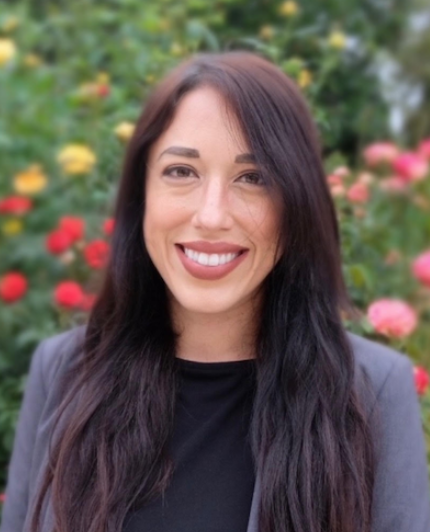
First-Year College Experience & Finding a Sense of Belonging
By Mercedes Albarran, M.S.
Director of College Persistence and Completion, Center for Equity and Postsecondary Attainment at San Diego State University
“I’ve learned that people will forget what you said, people will forget what you did, but people will never forget how you made them feel.”
-Maya Angelou
Within my career in higher education, I have had the opportunity to serve as an academic adviser and counselor for first generation undergraduate students from low-income and historically marginalized communities. I learned through my interactions with students that creating a lasting impact is not based on what is said or done, but by how that student feels by the end of that conversation or interaction.
When I was 18 years old, I attended a large predominantly white public university serving approximately 33,000 students. As a bi-racial woman coming from a conservative family in a small city with fewer people than the university as a whole, I felt lost and out of place. This was my first experience living away from family and living in a residential hall with a roommate I had never met before. I was not a part of any programs on campus and never connected with an academic counselor or adviser. I did not receive guidance on how to plan out my classes and my first semester schedule was all over the place with classes beginning at 8 A.M. with my following class beginning at 3 P.M. In addition, I was astonished at how large the classes were. One of my courses was a 500 student lecture hall. I felt like a small fish in a big pond. I began to experience personal life challenges I never faced before and my mental health began to take a toll. However, I was raised to face challenges on my own and to not burden others with my needs. I did not have people that I felt could understand me or help me. I began doubting my abilities and reason for being in college.
School had always been my area of strength in high school with my grades averaging a 3.5 GPA. Now, I was on the verge of being placed on academic probation. I was working 20-25 hours a week to help support my costs of living. I saw other students receiving care packages and money to buy the newest technology and supplies. Other students had cars and could leave campus often to visit friends and family from back home. I had to use the library to study and print my assignments and I could only leave campus if I had a ride from someone else. I began searching for options to transfer and leave the university in order to live at home and save on costs of living. I wanted to move back home and be around my high school friends and family. A place where I felt I belonged. But I wasn’t about to quit. I had the pressure of not letting my family down. I began looking into cultural based clubs and organizations to find a group of students I felt connected to. I changed my major from Nursing to Child and Family Development. I started feeling more connected to my university and found a group of students where I felt a sense of belonging. It is through these connections that I began to find my home away from home and my motivation and drive to succeed again.
Sense of belonging is not a new term in higher education or for people in general. The need for love and belonging rank third in Maslow’s hierarchy of needs. We, as human beings, are social creatures that desire human connection. When deprived of this basic need, it can result in loneliness and depression. Strayhorn (2012) defines sense of belonging as “students’ perceived social support on campus, a feeling or sensation of connectedness, the experience of mattering or feeling cared about, accepted, respected, valued by, and important to the group (e.g. campus community) or others on campus (e.g. faculty, peers)” (p.3).
Building community and supporting students in developing a sense of belonging are not only impactful within the student-counselor relationship but feeling connected to a college campus has been correlated with making an impact on the successful transition to college and in supporting the retention and persistence students make towards degree completion.
Coming to college for the first time is not an easy transition for a majority of students. First year students are exploring a new sense of independence, acclimating to more rigorous academic expectations, immersing themselves in a new student body and campus culture that may be different from the community they were raised in, as well as trying to balance and prioritize time and responsibilities with feelings associated with homesickness and isolation. These experiences are often more exacerbated with first generation college students, of which many are students of color, who do not have a support system at home to reach out to for guidance on how to navigate these new college environments and challenges. Many of the first generation college students I have worked with come from households where they need to work and help support their cost of living and/or provide for their families. They have responsibilities to care for their younger siblings and/or nieces and nephews. In addition, many students of color voice their experience dealing with the cultural stigmas associated with mental health and asking for help.
My reason for dedicating my career in higher education stems from wanting “to be the person I needed when I was younger.” By sharing my experience going to college and the experiences both good and bad, I am able to relate and connect to students that may not have a person or outlet to share their trials and tribulations without judgment or criticism. I strive to create a welcoming environment that is inclusive to all ethnicities, abilities, religions, sexual orientations, and gender identities. I know that it is important for first year students, students of color, and first generation students to find a place on campus where they feel understood and accepted in order to create an open space for students to ask questions and ask for help when challenges arise. I feel honored to be a part of each of my students’ educational journeys and help students recognize their strengths and resilience, as well as encourage students to pursue their dreams and advocate for changes in the educational system to help remove the barriers that continue to fight against them.
For future and continuing college students, I leave you with 3 pieces of advice:
- Step outside of your comfort zone and find that counselor, professor, adviser, mentor, or group of peers that you connect with and can be your authentic self. You will be surprised that you are not alone and many students have faced similar experiences to your own.
- Asking for help is not something to be ashamed of. There are many free resources that you are paying for with your tuition and student fees. Use them.
- You deserve to be where you are. You earned a seat in college based on your hard work, determination, and abilities. Don’t let your thoughts or the opinions of others tell you otherwise.
Reference
Strayhorn, T. (2012). College students’ sense of belonging: A key to educational success for all. New York, NY: Routledge.

Mercedes Albarran, M.S.
Mercedes Albarran is the Director of College Persistence with the Center for Equity and Postsecondary Attainment and works with Avenues for Success and Hoover High School alumni to support their degree completion. She has been with SDSU since 2015 where she recently served as Counselor for the Educational Opportunity Program (EOP) and Ethnic Affairs, which supports first generation, low-income, and historically underserved college students. In addition, Mercedes previously served as the Academic Advisor for Compact Scholars and Academic Student Success Programs where she advised both Compact Scholars from Sweetwater Union High School District (SUHSD) and freshmen commuter students at SDSU. Mercedes has over a decade of experience working as a professional advocate for student success with diverse students in various educational settings including early childhood education, the K-12 sector, and in higher education. Her interests align with her experience in developing data driven retention strategies to support the needs of historically marginalized students in persisting toward degree completion in higher education. She is an alumna of San Diego State University and holds a Bachelor of Science degree in Child and Family Development from SDSU and a Master of Science degree in Educational Counseling with a Pupil Personnel Services (PPS) Credential from the University of La Verne. Mercedes has a passion for diversity, equity, and inclusion in an educational setting. She is committed to working with students holistically and is dedicated to providing guidance and support to students in reaching their educational and career goals.
